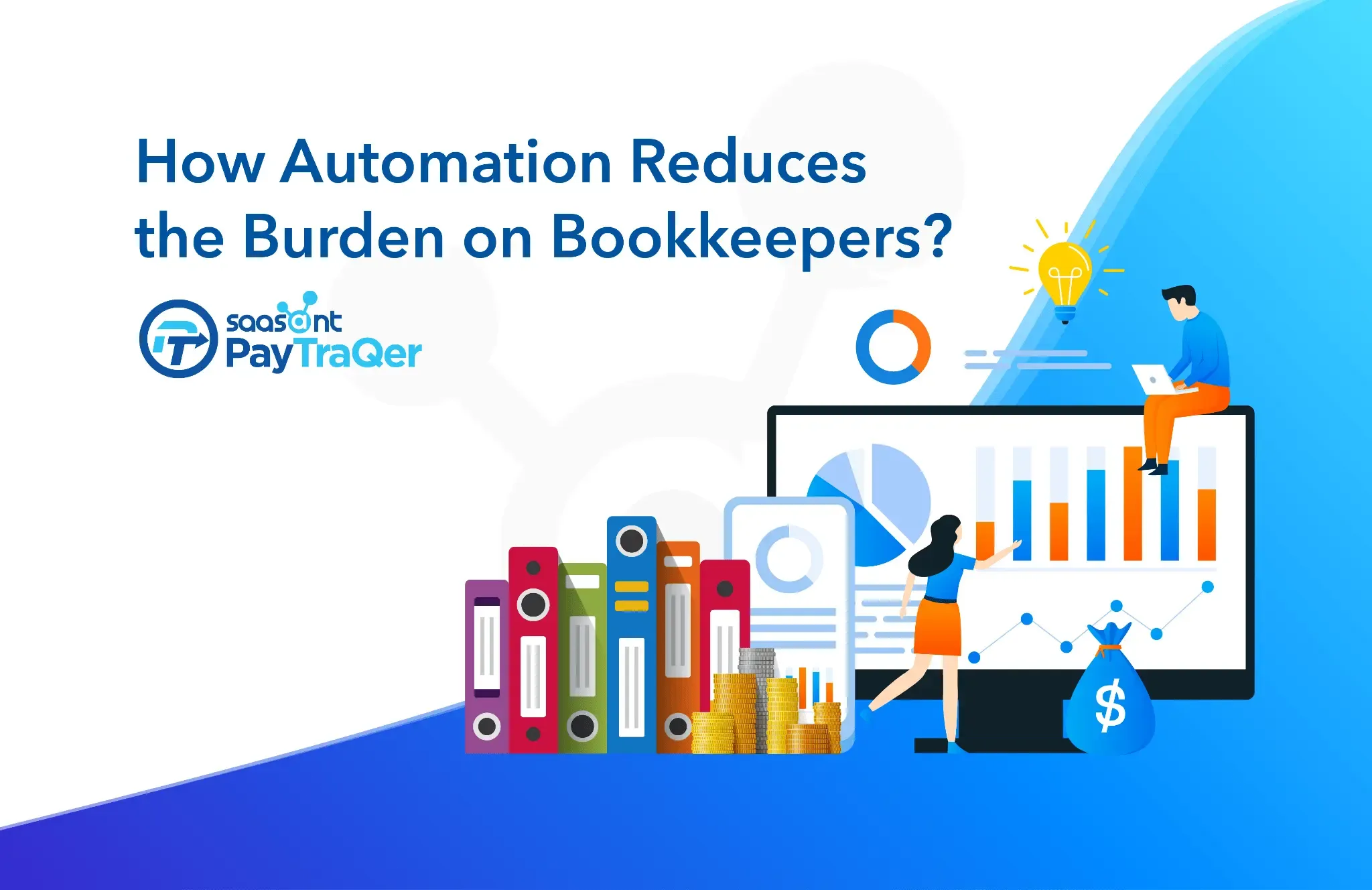How Automation Reduces the Burden on Bookkeepers?

You’d be surprised to know that even in 2023, many bookkeepers and accountants still struggle with automating clients' internal processes. The most cited challenges here are little education about available products and the lack of confidence in the technology choices they get their clients to make.
While bookkeeping has evolved in many ways over the years, it still remains the elementary function of financial accounting from where every accountant starts their career. Almost every firm maintaining healthy accounting habits over the years has credited this to an accurate and streamlined bookkeeping routine.
Accurate bookkeeping is essential to ensure the organization can make better business decisions, yet somehow, bookkeepers always remain the unsung heroes.
Most bookkeeping tasks are deferred to the end of a certain time period, say a week, month, quarterly, or even year-end. Some of the most common issues faced with manual bookkeeping are:
Human intervention is prone to errors
Time is taken to trace and rectify errors
Huge amounts of menial and unproductive work
Routine tasks that end up becoming repetitive and mundane
Addition of unnecessary stress to accountants
However, for a business to run smoothly, financial reports need to be presented in a timely fashion with complete accuracy. This is where automation comes in; it ensures that broken processes are converted into effective and efficient ones.
The pandemic brought most routine activities to a halt, yet most economies across the world sustained due to the higher adoption of robotic automation. A report from Netsuite indicated that 90% of large organizations across the world would have adopted robotic process automation in some form by the end of 2022. They also claimed that there was a growing horizontal market for RPA in automating financial reporting processes.
For every useful problem, an attainable solution always comes by. For manual bookkeeping, accounting automation tools became the savior that ensured menial, repetitive, and mundane tasks were automated.
Contents
How Does Automation Benefit the Bookkeeping Process?
How Does Automation Benefit the Bookkeeping Process?
Streamlined Bookkeeping Processes
Record-keeping becomes a breeze with automation. With all accounts now interlinked, cash flow and business expenses can be tracked easily. Additionally, automated bookkeeping enables accountants to have more time to focus on more important tasks. This enables growth for both accountants and their firms. With routine tasks taken care of now by automation, critical tasks that take more time can be tended to better.
Keep in mind that firms need their time to focus on financial planning and reporting to their clients. Automation ensures that the burden of accuracy and time and reduced to enable teams to focus on tasks that have a high impact.
Effortless Transaction Classifications
Process automation can help solve low-value, repetitive transactions of high quantity. Once a rule is in place, softwares instantly understand the nature and classification of these transactions. It then categorizes them into the appropriate ‘chart of accounts’ instantly.
Instant Bank/Credit Card Transactions
A key function of bookkeeping is to always know the liquidity of the firm. Through automation, bank statements and transaction records can be accessed instantly for use to determine one’s financial position.
Secure Storage for Data
Manual storage of critical financial information always leads to a security compromise. In the case of data breaches, the reputation and goodwill of your organization can be tarnished. With automation, however, information access can be controlled on a need to know the basics of keeping the data secure.
Better Client Relationships
Once your clients know that your bookkeeping and accounting systems are error-free, it’s automatically going to improve your relationship with them. When all their accounts, namely, day-to-day transactions, accounts receivable, and payable, are accurately maintained by updating in real-time, then you, as their accountant, are in a much better position to inform them. With such levels of accuracy and transparency, you would most likely gain a lifelong customer.
Automated compliance
Being error-prone, manual bookkeeping can make tax filing a tedious task. Delays in tax filing can also lead to hefty fines and trouble with the IRS. Automation can seamlessly enforce compliance across all your accounts to ensure they are always tax-ready.
In Conclusion
Automating manual functions ensures leaders are given access to a more transparent and integrated data flow across processes; thus, putting them in a better position to make strategic decisions. It also reduces the daily labor on accounting teams by changing their responsibilities from actually doing the process to simply managing it.
Keep in mind that automation tools will not replace accounting teams, but will only help them save multiple hours of labor while helping them transform how they operate and fit into the larger functionalities of the business.
While there may well be a shortage of accountants in the future, there will never be a shortage of available solutions.
Author bio:

Rahul believes everyone has a story to tell. If he isn’t writing one, he’s hearing one from someone.